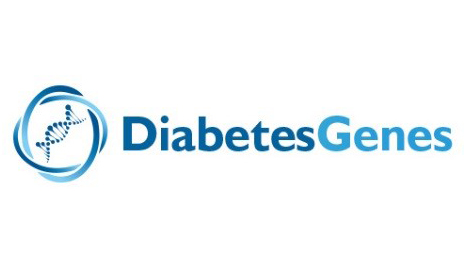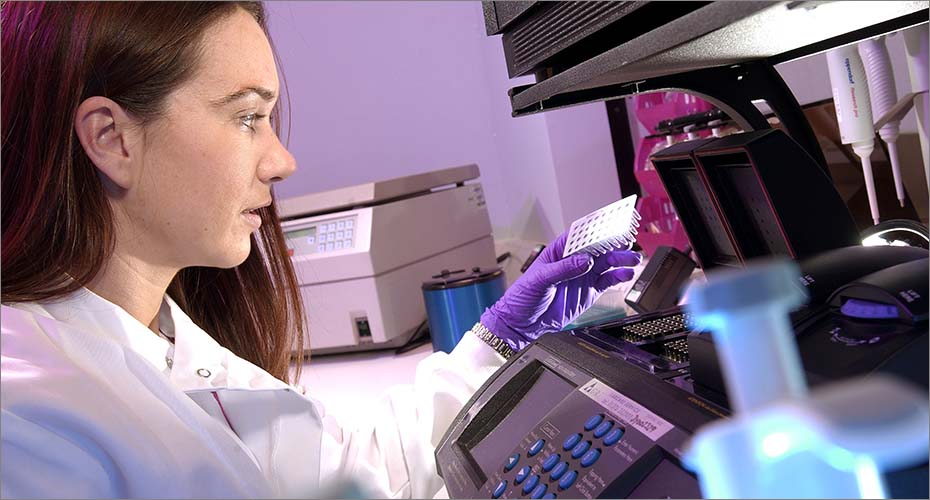Monogenic Diabetes
The Monogenic Diabetes group is a multi-disciplinary group of Molecular Geneticists, Data scientists, Bioinformaticians, Clinical Scientists, Doctors, and Nurses. Its mission is to improve understanding and clinical care of monogenic diabetes.
The group's expertise is in Gene discovery, genomics, physiology, treatment response, diagnostic modelling, pharmacogenetics, and experimental medicine, and its research is aimed at:
• Defining the genetic aetiology of novel subtypes of monogenic diabetes
• Defining the clinical features, and pathophysiology of monogenic diabetes
• Developing the best approaches to diagnosis of monogenic diabetes (both clinical and molecular genetic)
• Optimising education, treatment and management for patients living with monogenic diabetes
• Using monogenic diabetes to understand physiology and broader concepts
• Understanding the relationship between monogenic diabetes and Type 1 and Type 2 diabetes.
| Name | Role |
|---|---|
| Professor Andrew Hattersley | Professor of Molecular Medicine, Clinical Director, NIHR Clinical Research Facility, Honorary Consultant |
| Professor Inês Barroso | Professor of Diabetes |
| Professor Maggie Shepherd | Diabetes Education lead. Honorary Clinical Professor |
| Professor Sarah Flanagan | Associate Professor in Genomic Medicine, Wellcome Trust Senior Research Fellow |
| Professor Mike Weedon | Associate Professor in Bioinformatics |
| Professor Caroline Wright | Professor in Genomic Medicine |
| Dr Nick Owens | Lecturer in Data Science and Artificial Intelligence |
| Dr Elisa de Franco | Senior Research Fellow, Diabetes UK RD Lawrence Fellow |
| Dr Kashyap Patel | Wellcome Trust Career Development Fellow, Honorary Consultant in Diabetes & Endocrinology |
| Dr Matt Johnson | UKRI Expanding Excellence in England, Independent Research Fellow |
| Dr Matthew Wakeling | Independent Research Fellow |
| Dr Coralie Bingham | Honorary Clinical Senior Lecturer and Consultant in Renal Medicine Royal Devon & Exeter NHS Foundation Trust |
| Dr Pam Bowman | Academic Clinical Lecturer in Clinical Genetics |
| Dr Tom Laver | Lecturer in Diabetes |
| Dr Kevin Colclough | Clinical Scientist, Joint head NHS MODY genetic testing service, |
| Dr Jayne Houghton | Clinical Scientist, Joint head NHS MODY genetic testing service, |
| Bev Shields | Graduate Research Assistant |
| Dr Alice Hughes | Postdoctoral researcher and honorary clinical research fellow |
| Dr Nicola Jeffery | Associate Research Fellow |
| Kathryn Hinton | PhD Student |
| Ailsa MacCalman | PhD Student |
| James Russ-Silsby | PhD Student |
| Russel Frew | PhD Student |
|
Ben Spurrier |
Research Assistant |
The group's collaborations include:
- All UK Hospitals
- University of Oxford
- Imperial College London
- University of Chicago, USA
- Bergen University, Norway
- University of Rome, Italy
- Hôpital Universitaire Necker Enfants Malades, Paris, France
- Centre for Genomic Regulation, Barcelona, Spain
- University of Helsinki, Finland
- Jagiellonian University Medical College, Krakow, Poland
- Stanford University, USA
- ULB Center for Diabetes Research, Brussels, Belgium
- University of Washington, St Louis, USA
Recent key papers
Type 1 diabetes can present before the age of 6 months and is characterised by autoimmunity and rapid loss of beta cells.
Johnson MB, Patel KA, De Franco E, Hagopian W, Killian M, McDonald TJ, Tree TIM, Domingo-Vila C, Hudson M, Hammersley S, Dobbs R; EXE-T1D Consortium, Ellard S, Flanagan SE, Hattersley AT, Oram RA. Diabetologia. 2020 Oct 8. doi: 10.1007/s00125-020-05276-4. PMID: 33029656
A Specific CNOT1 Mutation Results in a Novel Syndrome of Pancreatic Agenesis and Holoprosencephaly through Impaired Pancreatic and Neurological Development. De Franco E, Watson RA, Weninger WJ, Wong CC, Flanagan SE, Caswell R, Green A, Tudor C, Lelliott CJ, Geyer SH, Maurer-Gesek B, Reissig LF, Lango Allen H, Caliebe A, Siebert R, Holterhus PM, Deeb A, Prin F, Hilbrands R, Heimberg H, Ellard S, Hattersley AT, Barroso I. Am J Hum Genet. 2019 May 2;104(5):985-989. PMID: 31006513
Effectiveness and safety of long-term treatment with sulfonylureas in patients with neonatal diabetes due to KCNJ11 mutations: an international cohort study.
Bowman P, Sulen Å, Barbetti F, Beltrand J, Svalastoga P, Codner E, Tessmann EH, Juliusson PB, Skrivarhaug T, Pearson ER, Flanagan SE, Babiker T, Thomas NJ, Shepherd MH, Ellard S, Klimes I, Szopa M, Polak M, Iafusco D, Hattersley AT, Njølstad PR; Neonatal Diabetes International Collaborative Group. Lancet Diabetes Endocrinol. 2018 Aug;6(8):637-646 PMID: 29880308
Landmark papers
Activating germline mutations in STAT3 cause early-onset multi-organ autoimmune disease.
Flanagan SE, Haapaniemi E, Russell MA, Caswell R, Allen HL, De Franco E, McDonald TJ, Rajala H, Ramelius A, Barton J, Heiskanen K, Heiskanen-Kosma T, Kajosaari M, Murphy NP, Milenkovic T, Seppänen M, Lernmark Å, Mustjoki S, Otonkoski T, Kere J, Morgan NG, Ellard S, Hattersley AT. Nat Genet. 2014 Aug;46(8):812-814. PMID: 25038750 >310 citations. This was amongst the first studies to use next-generation sequencing to find a novel monogenic diabetes gene. The results highlighted a role for STAT3 in beta cell autoimmunity and/or pancreatic development.
Switching from insulin to oral sulfonylureas in patients with diabetes due to Kir6.2 mutations.
Pearson ER, Flechtner I, Njolstad PR, Malecki MT, Flanagan SE, Larkin B, Ashcroft FM, Klimes I, Codner E, Iotova V, Slingerland AS, Shield J, Robert JJ,Holst JJ, Clark PM, Neonatal Diabetes International Collaborative Group, Ellard S, Sovik O, Polak M*, Hattersley AT
N England J Med 2006;3:467-77 PMID: 16885550 >950 citations. This study dramatically changed patient care for children with neonatal diabetes as 90% of insulin-dependent patients with Kir6.2 mutations could transfer from insulin injections to sulphonylurea tablets and improve their glycaemic control. In accompanying physiological studies we established the key role of non-KATP pathways as the predominant mechanism of action
Recessive mutations in a distal PTF1A enhancer cause isolated pancreatic agenesis.
Weedon MN, Cebola I, Patch AM, Flanagan SE, De Franco E, Caswell R, Rodríguez-Seguí SA, Shaw-Smith C, Cho CH, Lango Allen H, Houghton JA, Roth CL, Chen R, Hussain K, Marsh P, Vallier L, Murray A; International Pancreatic Agenesis Consortium, Ellard S, Ferrer J, Hattersley AT. Nat Genet. 2014 Jan;46(1):61-4 PMID: 24212882 >220 Citations. This is the first study to identify novel disease-causing non-coding variants by combining genome sequencing with epigenomic annotation in hESC-derived pancreatic progenitors. We showed mutations which disrupt a, previously unrecognised, regulatory enhancer of PTF1A is the most common cause of isolated pancreatic agenesis.
Wellcome Trust, UKRI, MRC, Diabetes UK, Diabetes Research and Wellness Foundation, EU
Prof Anna Gloyn, Stanford University, USA
Prof Ewan Pearson, University of Dundee
Prof Katharine Owen, University of Oxford
Prof Rinki Murphy (nee Singh), Auckland, New Zealand
Dr Oscar Rubio-Cabezas, Madrid, Spain (deceased)
The Monogenic Diabetes research group uses the following research facilities and technologies:
- The Exeter Sequencing Service
- RILD Molecular Biology Resources
- NIHR Clinical Research Facility (CRF)
- High Performance Computing
More details of all of these can be found here.


